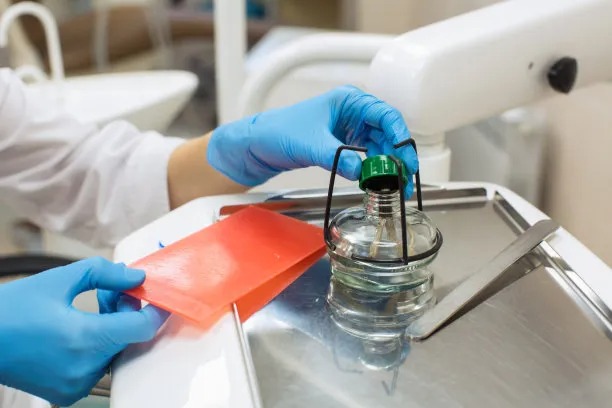Summary: Root canal treatment is a highly effective procedure aimed at saving a tooth that is infected or badly decayed. However, to ensure successful outcomes and optimal dental health, there are essential guidelines and precautions that patients should follow. This article emphasizes the importance of understanding the procedure, consulting with qualified dental professionals, preparing adequately for the treatment, and understanding post-treatment care. Each of these aspects is crucial for minimizing discomfort, enhancing recovery, and ensuring the longevity of the treated tooth.
1. Understanding the Root Canal Procedure

The root canal treatment is a procedure designed to treat the inside of a tooth when it becomes infected or inflamed. Understanding the process is essential for alleviating any anxiety that may arise before the treatment. Typically, the treatment involves removing the infected pulp, cleaning and disinfecting the inside of the tooth, and then sealing it to prevent further infection.
Patients should be aware that receiving a root canal does not necessarily mean immediate pain relief; the actual procedure can vary in duration and complexity. Its important to have realistic expectations about both the experience of the procedure and the time required for recovery. Dental professionals often utilize advanced technologies to enhance the root canal process, which makes it less discomforting than many patients anticipate.
Additionally, asking questions and expressing concerns with the dentist before the procedure can provide reassurance and clarify the treatments details. This understanding helps patients mentally prepare for their appointment and encourages a more positive experience during the root canal treatment.
2. Consulting Professional Dental Care Providers
Choosing the right dental professional is one of the most critical steps before undergoing a root canal treatment. Not all dentists are trained to perform this intricate procedure, so its important to seek out a licensed endodontist who specializes in treating dental pulp and root canal therapy. Their expertise can significantly impact the success of the treatment.
Before the treatment, patients should also consult their dentist about their medical history, current medications, and any underlying health conditions that might affect the procedure. This open communication ensures that the dentist can perform the treatment safely and take any necessary precautions.
Moreover, seeking recommendations and reading reviews about different dental professionals can help patients find a reputable and experienced practitioner. Patient testimonials can provide insights into the dentists skills, patient care, and the overall treatment experience, making the decision easier and more informed.
3. Preparing for the Treatment Effectively
Proper preparation is key to a smooth root canal treatment experience. Patients should follow their dentist’s advice for pre-treatment preparations, which may include dietary restrictions, medication adjustments, and rest before the procedure. Its generally recommended to have a light meal before the appointment while avoiding heavy foods or Ulye that may interfere with anesthesia.
Transportation arrangements should also be considered, especially if sedatives are used during the procedure. Patients may feel groggy afterward and should ideally have someone accompany them home. This minor logistics ensure that stress is minimized and comfort is prioritized post-treatment.
Finally, it is valuable for patients to gather any personal items that can provide comfort during the procedure, such as headphones for listening to music or a stress ball. Feeling at ease and adequately prepared can significantly affect the overall experience of undergoing a root canal.
4. Post-Treatment Care Recommendations
Following root canal treatment, proper care is essential to ensure healing and prevent complications. One of the key recommendations is to manage discomfort with prescribed medications, which may include pain relievers and antibiotics. Consulting with the dentist on how to manage pain or swelling is imperative for a smooth recovery.
Additionally, maintaining good oral hygiene is crucial during the recovery period. Keeping the treated area clean allows the healing process to proceed without infection. Patients should continue brushing and flossing as directed, avoiding hard or chewy foods that could disrupt the healing tooth.
Finally, scheduling follow-up appointments to monitor healing and assess the success of the treatment is vital. Regular check-ups provide an opportunity for dentists to identify any potential issues early on, ensuring long-term dental health and the longevity of the treated tooth.
Summary: Understanding the necessary guidelines and precautions before undergoing root canal treatment significantly enhances the treatment experience and outcome. From grasping what the procedure involves to proper post-treatment care, patients can foster optimal dental health. Seeking the right professionals and engaging in thorough preparation will lead to better experiences, reduced discomfort, and successful long-term results.
This article is compiled by Vickong Dental and the content is for reference only.
Vickong Dental
Vickong Dental is a large medical group established in Hong Kong in 2008 by professors from well-known medical universities in Guangdong and Hong Kong, as well as medical doctors from key national '985' universities (including Master's supervisors and senior professors). The chain of branches brings together expert dentists with PhDs and Master's degrees from Hong Kong and Mainland China, committed to providing high-quality dental treatment.
"Vickong Dental Practices the University Motto of 'Healing and Serving Society,' with a Stable Operation for Sixteen Years. It Has Been honored with Hong Kong Enterprise Leaders's Choice,' and is a Global Trusted Implant Center for the Nobel Implant System. Recommended by Hong Kong Metro Broadcast and Guangdong Television, it Serves Customers from Over Thirty Countries and Regions, Gaining the Trust and Favor of Citizens from the Guangdong-Hong Kong-Macau Greater Bay Area and Surrounding Cities.

Thousands of customers' unanimous praise
The most recognized and highly recommended dental service by customers in the Guangdong-Hong Kong-Macau Greater Bay Area
We Ensure You Receive Detailed Care and Attention Here
Hong Kong standards, Shenzhen prices, Your Trusted English-speaking dentists

Vickong Dental Medical-Grade Instrument Disinfection Process
Vickong Dental Medical-Grade Instrument Disinfection Process

Vickong Dental Chain: A Warm and Comfortable Environment for Treatment






Appointment Hours

Q&A
Why choose Vickong Dental?
Vickong Dental practices the university motto 「Medicine to Benefit Society」, with each branch bringing together highly qualified dentists with doctoral and master’s degrees from Hong Kong and the Mainland, and has maintained seventeen years of steady operation。Recipient of 「2024 Hong Kong Enterprise Leaders Brand」, 「2025 Hong Kong Enterprise Leaders Brand」, a Nobel Biocare Global Trusted Implant Center, and a brand recommended by Metro Radio Hong Kong and Guangdong TV。
To date, we have served customers from more than thirty countries and regions,earning exceptionally high word-of-mouth recognition and trusted recommendations from residents across the Guangdong-Hong Kong-Macao Greater Bay Area and surrounding cities
We have eight major branches in Zhuhai、Shenzhen,and a consultation and service assurance center in Hong Kong,so you can book a free consultation at any time for any questions,which is very reassuring.
If I do not accept the quotation after the CT scan, will I be charged??
No! As long as the actual treatment has not started, you will not be charged any fees.
Will there be any additional charges during the treatment process?
No, there won’t be any additional charges. Before treatment begins, we will clearly explain the treatment plan and its corresponding fees. Only after the patient agrees and signs the consent form will we proceed with the dental service.
Can I pay in Hong Kong dollars?
Yes. Vickong Dental accepts payment in Hong Kong dollars. The amount will be converted based on the exchange rate of the day, and the applicable rate will be clearly communicated to you in advance.
Can I reschedule my appointment at any time?
Yes. Please contact us via **WeChat** or **WhatsApp** as early as possible, providing your original appointment time and details, along with your preferred new date and time slot for rescheduling.













